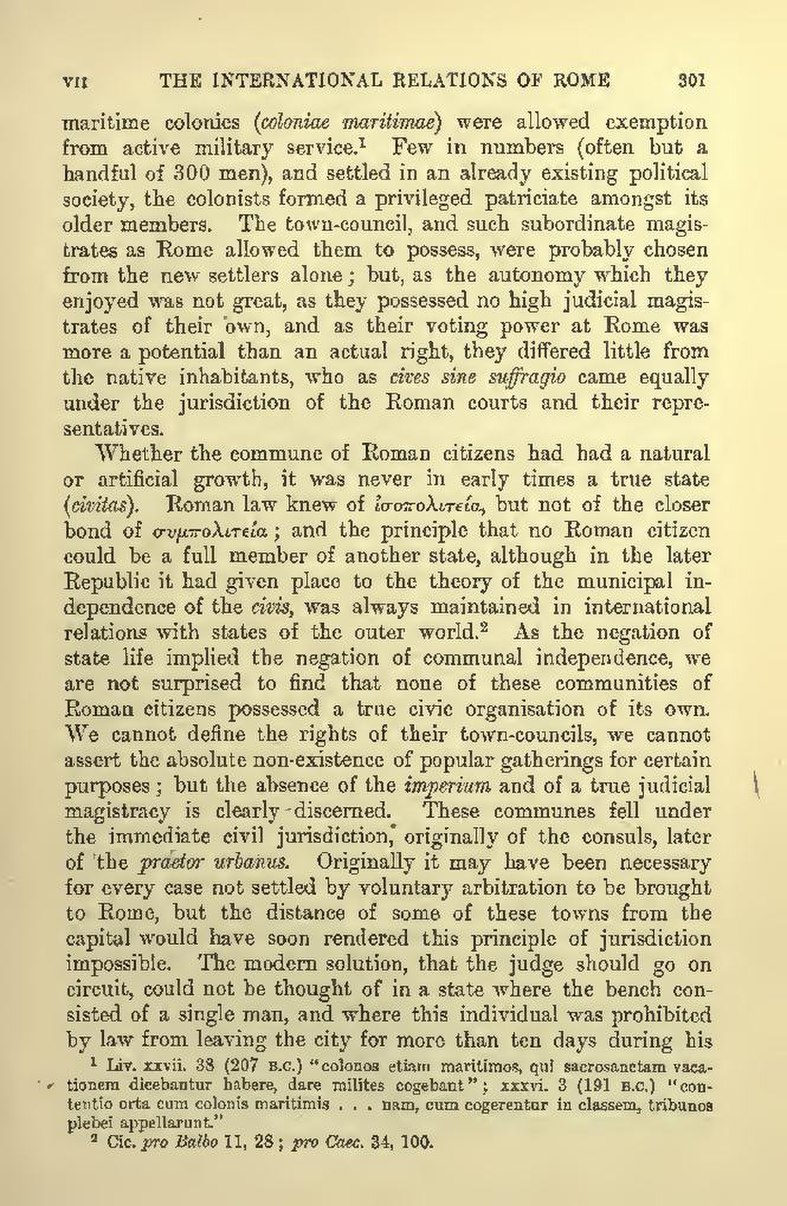maritime colonies (coloniae maritimae) were allowed exemption from active military service.[1] Few in numbers (often but a handful of 300 men), and settled in an already existing political society, the colonists formed a privileged patriciate amongst its older members. The town-council, and such subordinate magistrates as Rome allowed them to possess, were probably chosen from the new settlers alone; but, as the autonomy which they enjoyed was not great, as they possessed no high judicial magistrates of their own, and as their voting power at Rome was more a potential than an actual right, they differed little from the native inhabitants, who as cives sine suffragio came equally under the jurisdiction of the Roman courts and their representatives.
Whether the commune of Roman citizens had had a natural or artificial growth, it was never in early times a true state (civitas). Roman law knew of [Greek: isopoliteia], but not of the closer bond of [Greek: sympoliteia]; and the principle that no Roman citizen could be a full member of another state, although in the later Republic it had given place to the theory of the municipal independence of the civis was always maintained in international relations with states of the outer world.[2] As the negation of state life implied the negation of communal independence, we are not surprised to find that none of these communities of Roman citizens possessed a true civic organisation of its own. We cannot define the rights of their town-councils, we cannot assert the absolute non-existence of popular gatherings for certain purposes; but the absence of the imperium and of a true judicial magistracy is clearly discerned. These communes fell under the immediate civil jurisdiction, originally of the consuls, later of the praetor urbanus. Originally it may have been necessary for every case not settled by voluntary arbitration to be brought to Rome, but the distance of some of these towns from the capital would have soon rendered this principle of jurisdiction impossible. The modern solution, that the judge should go on circuit, could not be thought of in a state where the bench consisted of a single man, and where this individual was prohibited by law from leaving the city for more than ten days during his
